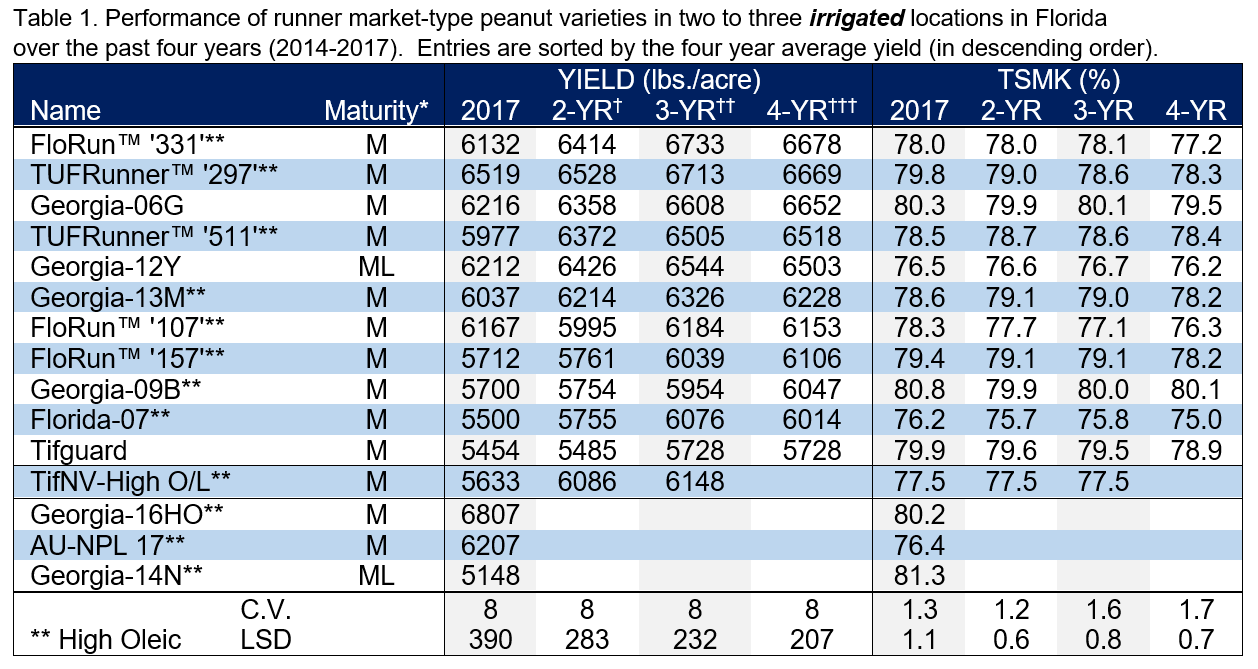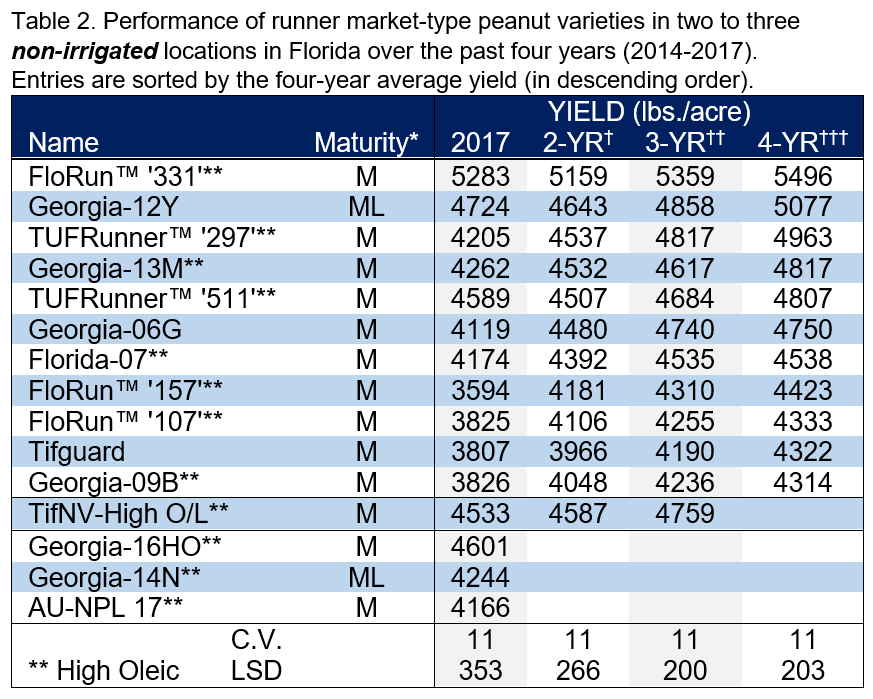After attending the annual meeting of the National Association of Plant Breeders in Davis, California last summer, I took a couple of days to drive down to Sequoia National Park to see the Giant Sequoia trees. As I walked through the forest, these trees were so large they seemed out of place among the pine trees, and it was nearly impossible to take a picture that captured their immensity. But I tried, a lot. The picture here is about the best I could do to show the relative size. That red dot in the midst of these Giant Sequoia trees is my 19 year old son. These trees are truly “Bigger than Life.”
What does this have to do with peanut variety testing? Well, peanut breeders, and our customers, the peanut growers, are often hoping for a new variety with performance that is “bigger than life.” In reality, however, improvement in yield and disease resistance is a slow, incremental process that rarely occurs in great leaps. In short, we are unlikely to find a “Giant Sequoia” type peanut. But we are seeing continual improvement in our new peanut varieties, and they offer real potential for growers to realize higher economic returns.
Table 1 shows the pod yield and grade performance of peanut varieties in Florida over the past several years with irrigation, and Table 2 shows their performance under rainfed or dryland conditions. 
 Again in 2018, Georgia-06G will be the predominant variety with over 80% of the seed acreage grown in that variety in 2017. Others varieties, such as Georgia-09B, Tifguard, TUFRunnerTM ‘511’, and TUFRunnerTM ‘297’ should also be available from several seed companies. It is worth noting that there are four relatively new varieties on the list. These are FloRunTM ‘331’, Georgia-16HO, AU-NPL 17, and TifNV-High O/L. These varieties were a much smaller percentage of the total seed acreage in 2017, so seed supply will be very limited in 2018. Therefore, early booking of seed of any of these newer varieties is advisable. Their performance has been good,and should promote larger acreage production in 2018.
Again in 2018, Georgia-06G will be the predominant variety with over 80% of the seed acreage grown in that variety in 2017. Others varieties, such as Georgia-09B, Tifguard, TUFRunnerTM ‘511’, and TUFRunnerTM ‘297’ should also be available from several seed companies. It is worth noting that there are four relatively new varieties on the list. These are FloRunTM ‘331’, Georgia-16HO, AU-NPL 17, and TifNV-High O/L. These varieties were a much smaller percentage of the total seed acreage in 2017, so seed supply will be very limited in 2018. Therefore, early booking of seed of any of these newer varieties is advisable. Their performance has been good,and should promote larger acreage production in 2018.
Along with Georgia-14N and Tifguard, TifNV-High O\L has resistance to the root knot nematode. These would be good choices where that pest has been problematic.
- ‘Arnie’ – A New Peanut Variety Released by the University of Florida - February 2, 2024
- Early Leaf Spot Found on Peanuts in the Florida Panhandle - July 28, 2023
- Will 2023 be a Repeat of the Peanut TSWV of 2022? - July 14, 2023

